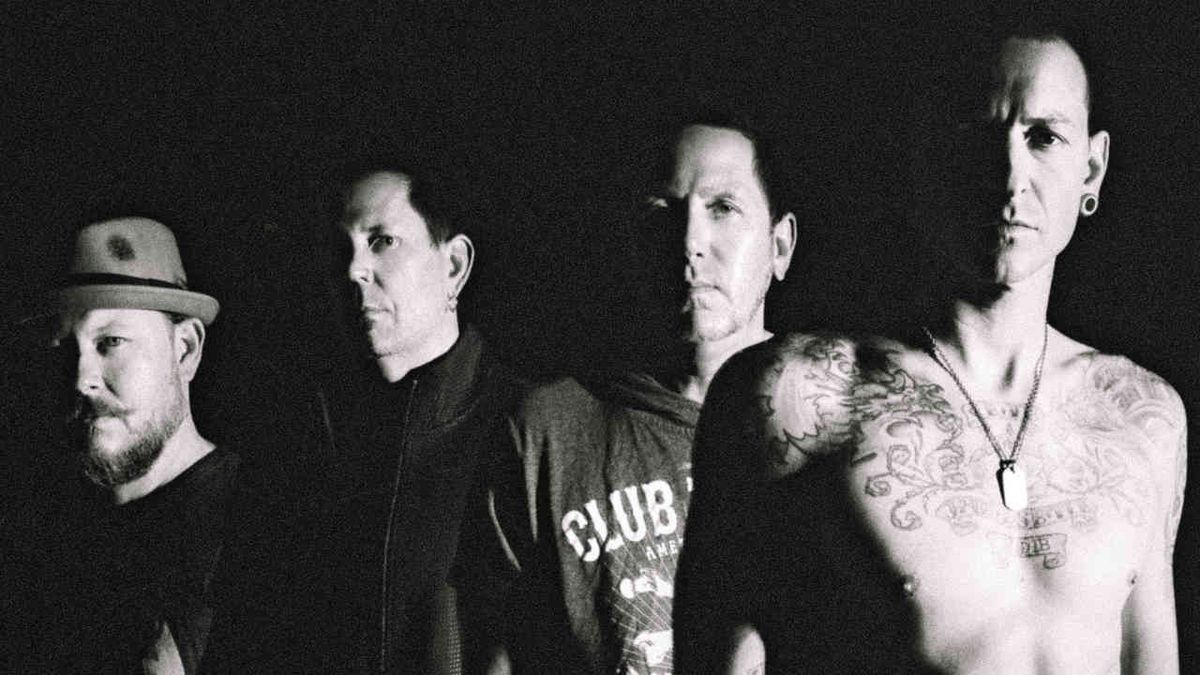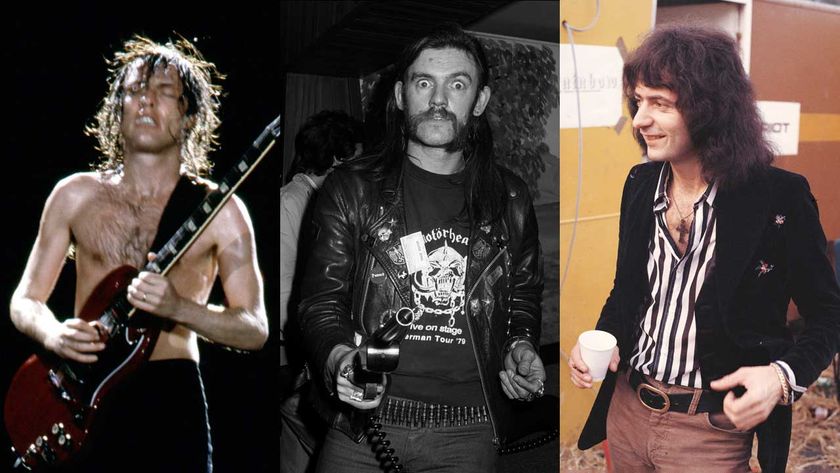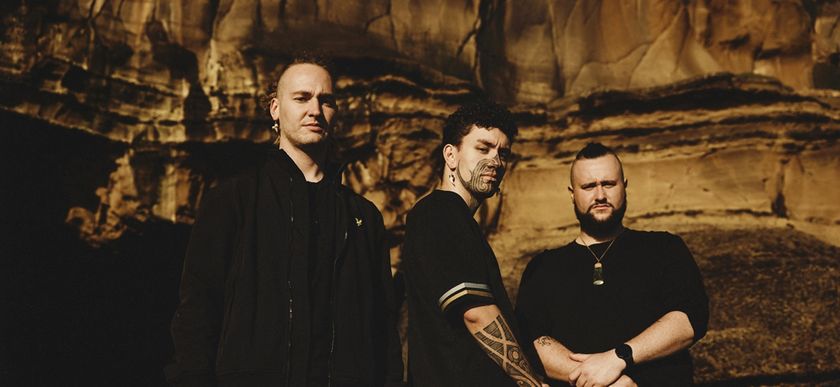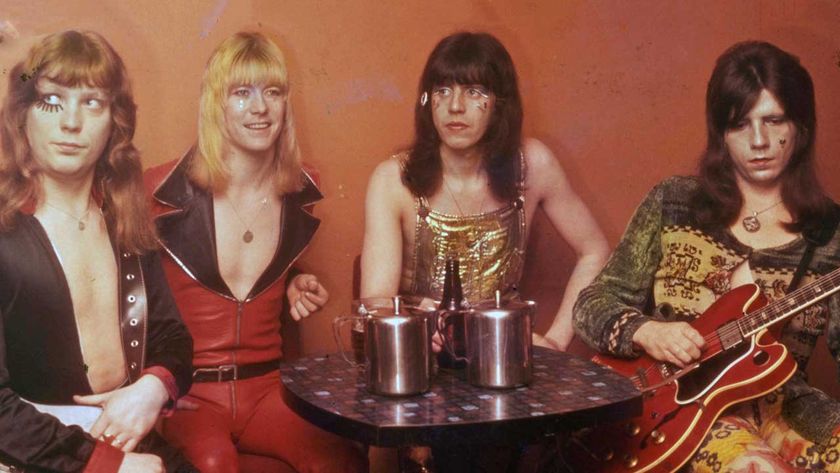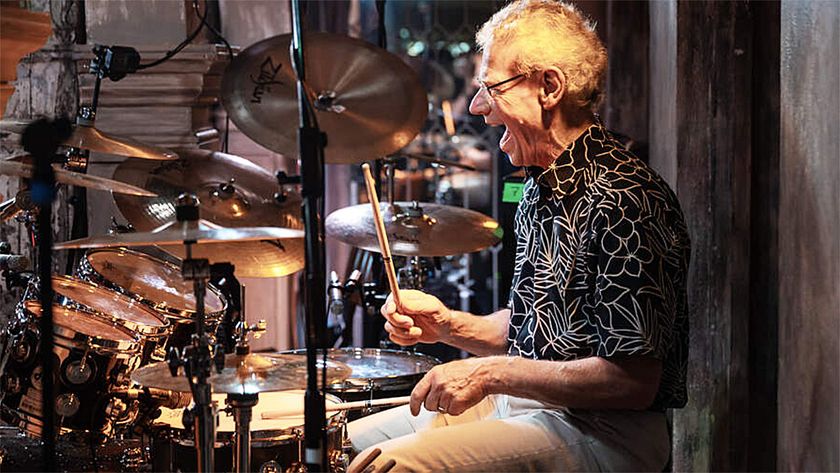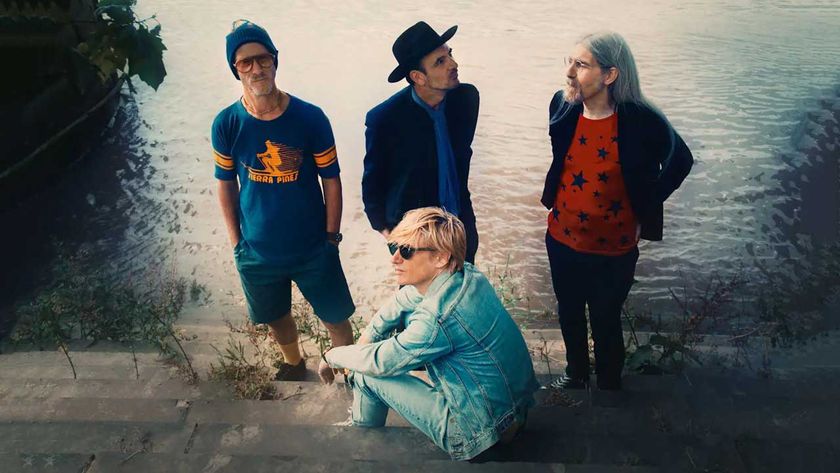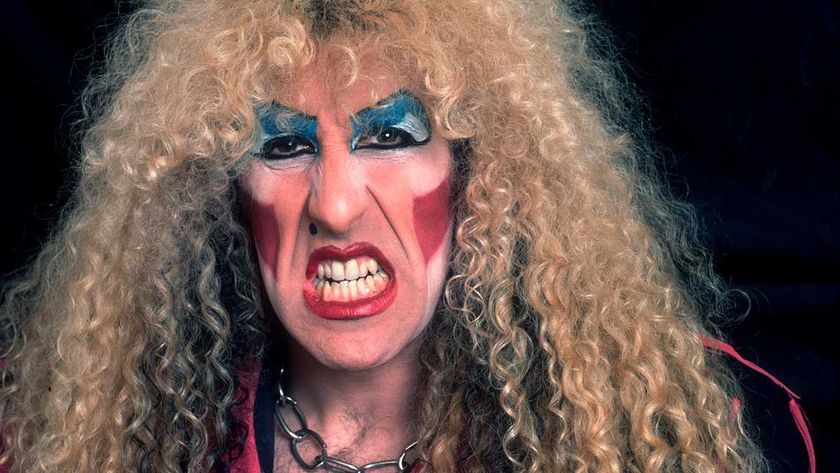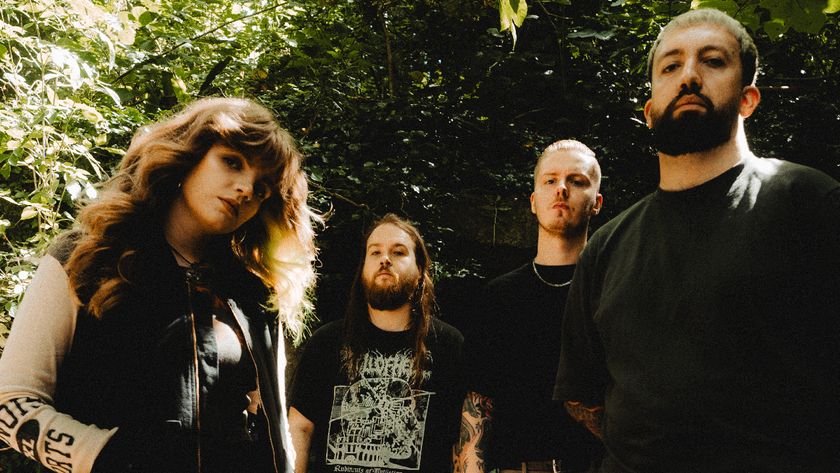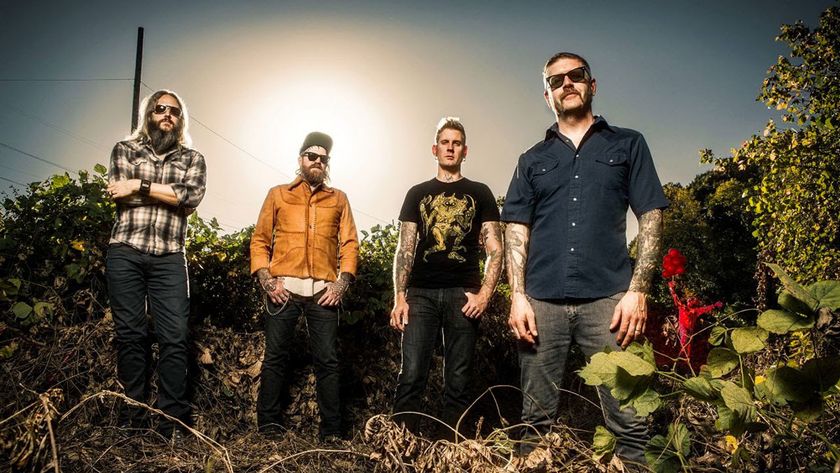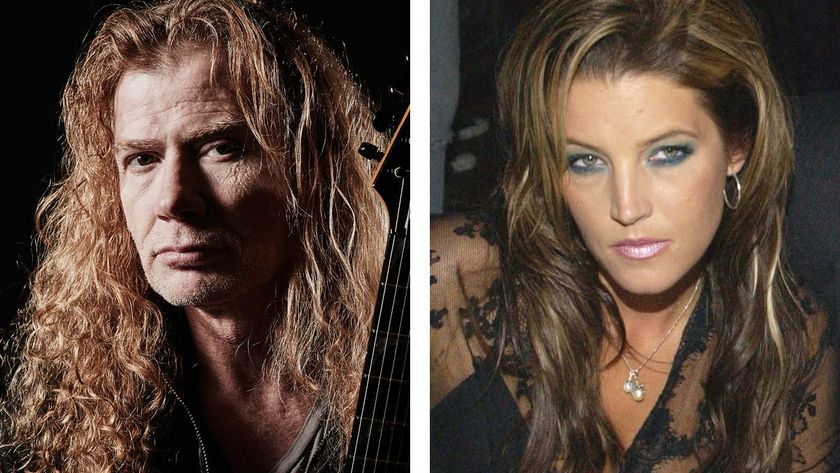It was the mid-90s, and Chester Bennington was sitting in an Arizona State University maths lecture. He wasn’t a college student – far from it. By that point, he had dropped out of high school to focus on his band, Grey Daze, and, without a job to keep him occupied, day after day he would accompany his housemate and bandmate, drummer Sean Dowdell, to classes. Hell, he’d even take the exams for a laugh.
“My maths class was so big there was 400-500 people in it,” remembers Sean. “They were handing out tests to everyone in the row and it wasn’t like he could say, ‘I’m not enrolled in this class’, so he took the test and bombed badly.”
This is just one of many heartwarming stories of a man who was a “playful ball of energy” and who never took life too seriously… except when it came to making the music he loved. Sure, Chester found it funny to gatecrash his bandmate’s uni lectures, but the truth was, following Sean to college made it easier to get a lift to band practice in the evenings. “He was always wanting to create great music,” says Sean. “If we were at a party and there was a guitar in the room, he’d find it somehow and start playing it. He was always a showman and was always wanting to perform.”
It would be years before Chester got the call that would change his life: in 1999, he was invited to audition for an LA-based band called Xero, who would eventually become Linkin Park. But his road to becoming one of the most recognisable vocalists on the planet started in the early 90s, when a 15-year-old Chester enrolled at Greenway High in Phoenix. He had been bullied mercilessly at his old school, but at Greenway, life was better. Chester fell in with a crowd who shared his love for Jane’s Addiction and Stone Temple Pilots, and discovered the dark allure of bands like The Cure and Depeche Mode. Drawn to the spotlight, he excelled on the track team, joined the drama club and started making a name for himself as a kid with a big voice.
Meanwhile, Sean was looking for a singer to join his band, SD And His Friends. Back then, grunge was still a global juggernaut, everyone had long hair and was wearing flannels, and Sean, having caught wind of this high school kid who apparently “sounded just like Eddie Vedder”, hoped the scene’s next great hope was about to walk through his door. “He didn’t look like a lead singer or a rock star to me,” he says today of the moment Chester turned up to audition. “He was a young, nerdy kid. He had glasses, he had really short hair. Then he went up and sang… and I shut my mouth. We were all floored.”
With Chester in the ranks, by 1994, the band had morphed into Grey Daze and recorded their debut album, Wake Me. Another album, No Sun Today, followed in 1997, and it’s these lost records that, over the last two years, Chester’s surviving bandmates have revisited, reworked and reissued, with 2020’s Amends and, this year, The Phoenix. Maintaining Chester’s original vocals while giving the music a modern makeover, the haunting recordings allow us to hear what Sean heard all those years ago – the sound of a young man very much still testing the limits of his voice, although his power and talent, even then, was unmistakable.
“Most people recognised Chester as a star,” says Scott Harrington, the LA-based entertainment attorney who represented both Grey Daze and Xero and who witnessed Grey Daze’s early gigs in Phoenix. “He’s amongst the best of the best, not just rock singers, singers period.”
It wasn’t long until Grey Daze were selling out mid-sized Phoenix venues on their own, supporting the likes of No Doubt, Bush and Suicidal Tendencies and securing regional airplay. At the core of their rising success, though, was the close “protective” friendship between Sean and Chester, which Sean describes as an “older brother/younger brother” relationship. The pair had bonded over music, playing basketball, partying and taking drugs, often making the three-and-a-half-hour drive from Phoenix to Mexico where they’d light a campfire, share beers on the beach, and imagine the days they would bring along their kids.
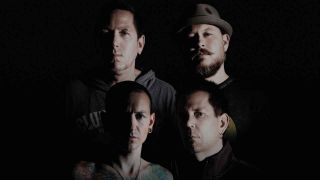
To an outsider, Chester was a happy, confident teenager, but behind it all, his life was in turmoil. The youngest of four children, his parents had divorced when he was 11 years old, splitting the family and darkening an already volatile home life. Separated from his mother, a nurse, and with his father, a police detective, working late shifts, Chester was left battling feelings of loneliness and abandonment. Years later, he would reveal that, from age “seven or eight”, he had been molested by an older male friend, telling Tom Bryant in Kerrang! that he “was getting beaten up and being forced to do things I didn’t want to do. It destroyed my self-confidence.”
“Music was definitely not only a creative outlet for him. I believe it was an emotional dump,” says Sean. “He was able to push some of the toxic venom that was in his stomach for most of his adult life, out through his music.”
By the time he was 16, Chester was blocking out the emotional trauma with alcohol and dangerous amounts of drugs. “I’d drink so much that I’d shit my pants,” he told Kerrang! “It was not pretty.”
Sean acknowledges that, without his knowledge, Chester’s drug use had taken a worrying turn. “He had a couple of sets of friends, and I did too. So there’d be times we didn’t see each other when we didn’t have a show, and he’d go off with those other friends and do some of that darker stuff.”
Grey Daze’s run would come to an end after a volatile gig in 1998, in an implosion of ego, resentment and infighting. By then, Chester was 22 years old, had married his first wife, Samantha, with Sean as his best man, and cleaned up his act. It would be a couple of years before he and Sean spoke again but, as Scott Harrington recalls, Chester’s focus remained single-mindedly on the music – he had immediately started working on new “cool and electronic” music in his basement. Little did he know, while he worked jobs in restaurants and coffee shops to pay his mortgage, 375 miles away in Los Angeles, the wheels of fate had started to turn.
In December 1998, following a disastrous showcase at Whiskey A Go Go on the Sunset Strip, a young band called Xero had found themselves in the market for a new singer. Led by rapper and producer Mike Shinoda, years before, the band had enraptured Zomba Records executive, Jeff Blue, with their grit-and-gloss blend of razor-sharp rap metal, cutting-edge electronica and monstrous pop choruses. But although Jeff was convinced of their potential, he’d been unable to nail down a record deal. “The band was like an acorn that could become the proverbial tree,” says Jeff. “I knew there was something that was missing, that would round out the whole thing.”
It was during SXSW Festival in Texas in 1999 that Scott Harrington, learning of the vocalist vacancy, suggested Chester might be perfect for the job. “I know how to save the band,” he told Jeff. “But you have to be ready for a two- frontman band, because this isn’t just a background singer, this is a superstar.”
Jeff called Chester right then and there, interrupting the singer’s 23rd birthday party. “Chester, hey man, I have a band in LA that’s going to be huge,” he said, pitching Xero as a cross between Depeche Mode, hip hop and Stone Temple Pilots, and agreeing to mail him their demo tape. “I went into a studio and cut my vocals over their demo the very next day,” Chester would later tell Kerrang! “That was a Saturday and on Sunday, I called Jeff Blue back and said: ‘I’m done, when should I come out?’ He laughed and said: ‘No, we need you to record some vocals before sending it to us.’ “I was really cocky, so I put the tape in my stereo, pushed the phone to the speaker, played him 15 seconds of the song and went, ‘Is that good enough for you?’ He went, ‘When can you be here?’ The next day, I was on the steps of Zomba Music at 9am, waiting for the doors to open.”
For Jeff Blue, that Chester uprooted his life to move to LA was no surprise. “Chester came out because that’s what stars do,” he says. “It’s not just the talent, it’s also that drive and that willingness to do anything that it takes.”
Yet chemistry took time to build. For four weeks, while the band, who changed their name to Hybrid Theory before eventually settling on Linkin Park, rehearsed with Chester, they continued to audition singers. “It was tough,” Chester said later. “I was fucking miserable. The only thing that was keeping me going was knowing we had something special going on.” Yet, even once inter-band relations clicked, and with Chester electrifying the band’s onstage presence, record labels continued to pass on them. In all, they would be turned down 44 times. “People just didn’t get it and it broke my heart,” remembers Jeff. “There was one showcase where Chester was in a guy’s face, so close. You could see the sweat shaking on the guy’s face and the spittle. It was a moment.”
Linkin Park would eventually sign with Warner and put out their debut, Hybrid Theory, in October 2000. Released at the perfect time, when nu metal was becoming a global commercial force, the album would sell 47,000 copies in its first week, becoming the best-selling album in the US in 2001. And while every member of the band is pulling together in the same direction to create the perfect harmony of angst and melody, there’s no doubt that the lasting gut punch comes from Chester’s incendiary screams, powerful cleans and agony-filled lyrics, all trademarks that he was making his own way back in the Grey Daze era.
“A lot of the things you hear him coming out with on Hybrid Theory, he was already developing on our records,” says Sean. “I’ve heard people say he didn’t do this or that until he joined Linkin Park, and that’s simply not true. People were resonating with him even back then.”
Until his death in 2017, Chester and Sean retained a close relationship, pursuing several business ventures together, including a tattoo and piercing business, Club Tattoo. In 2016, they decided to resurrect Grey Daze. Chester died three days before they were supposed to start rehearsing. We would never get to hear him revisit the music that had helped him hone his craft along the way to becoming the voice of a generation.
For Jeff, Chester’s true legacy was this ability to connect emotionally. “He was somebody who got an entire world to understand that there was somebody listening to them,” he says. “And that you’re not alone.”
“So many people felt like they knew him because he was describing an exact moment of pain they could pinpoint in their lives,” agrees Sean. “When people ask me about Chester, I don’t think he was a singer from my band – he was my friend. I miss him very much.”
Grey Daze album The Phoenix is out now via Loma Vista. Samaritans in the UK can be reached free on 116 123. In the US, the National Suicide Prevention Lifeline is 1-800-273-8255
